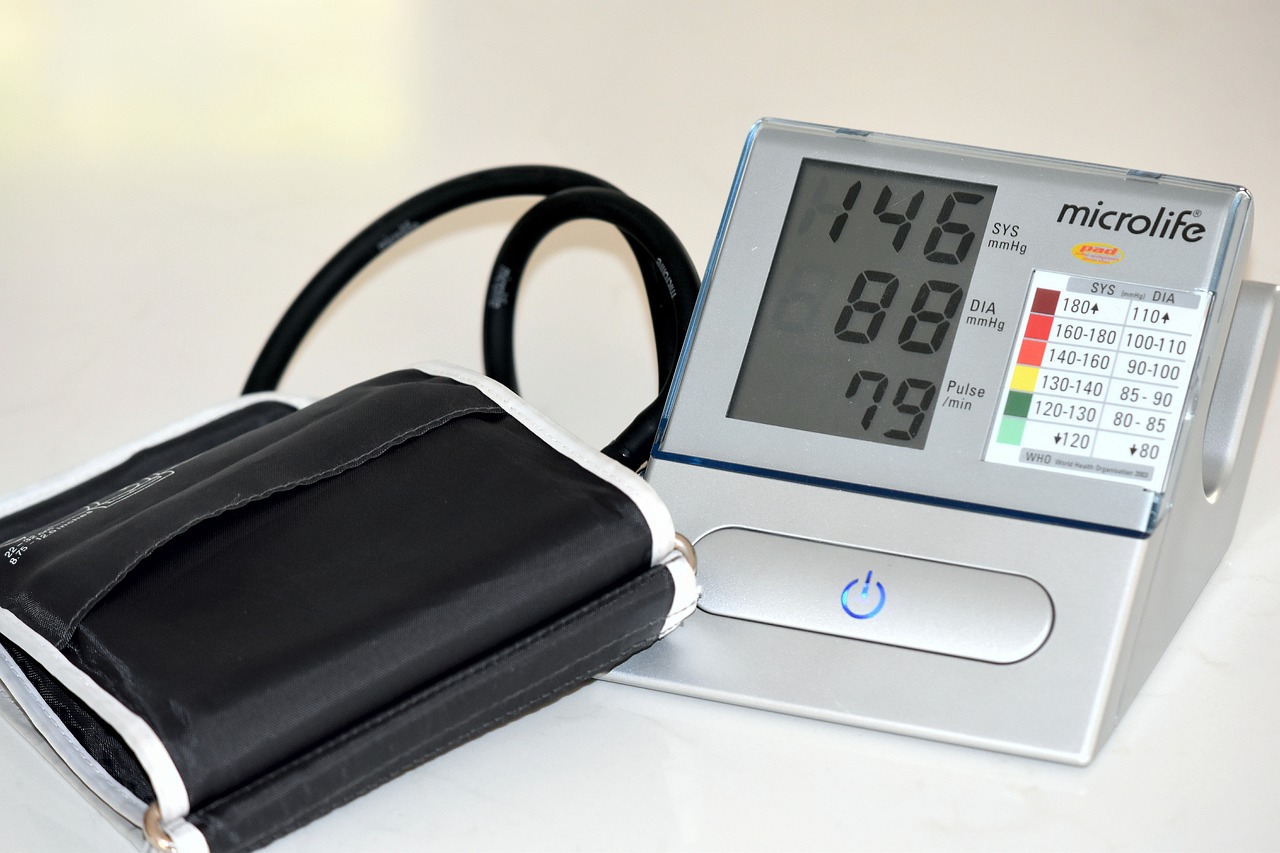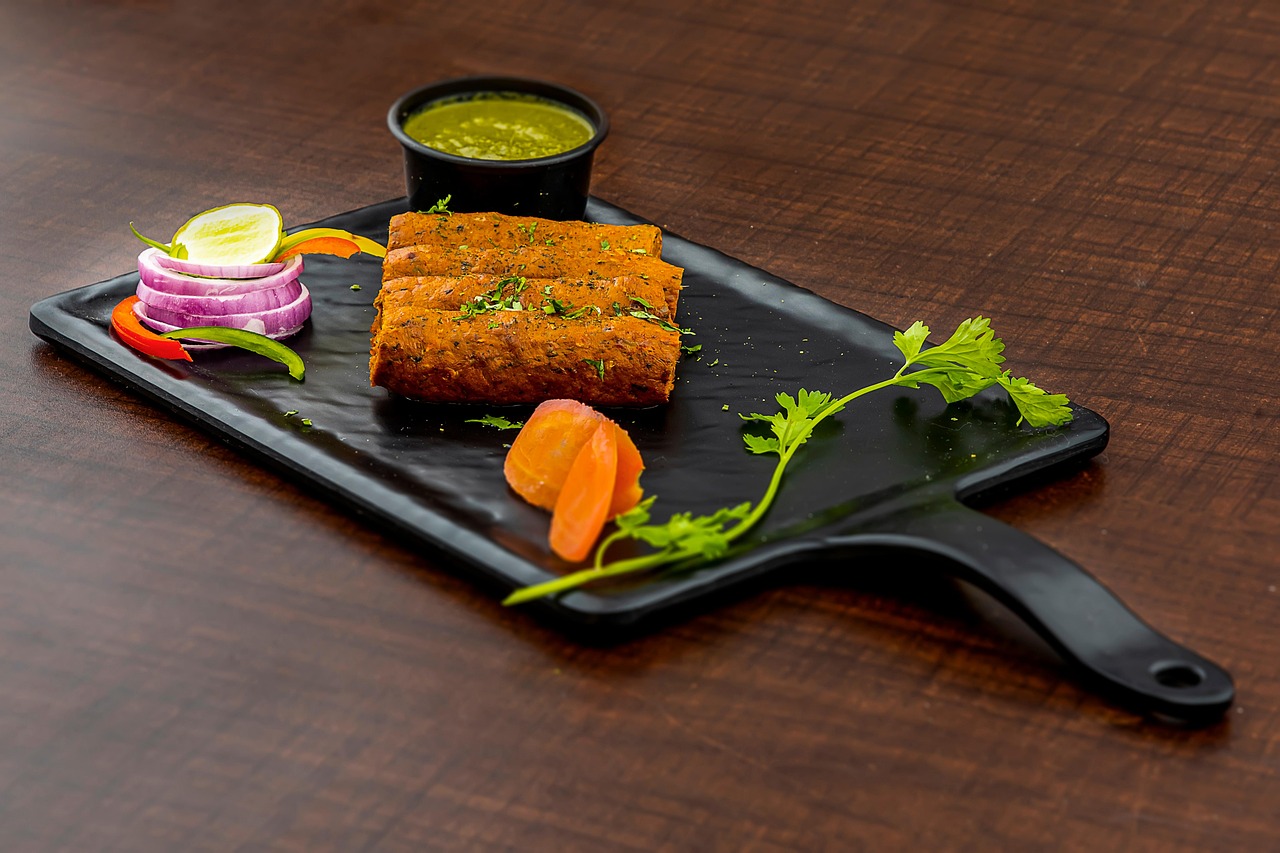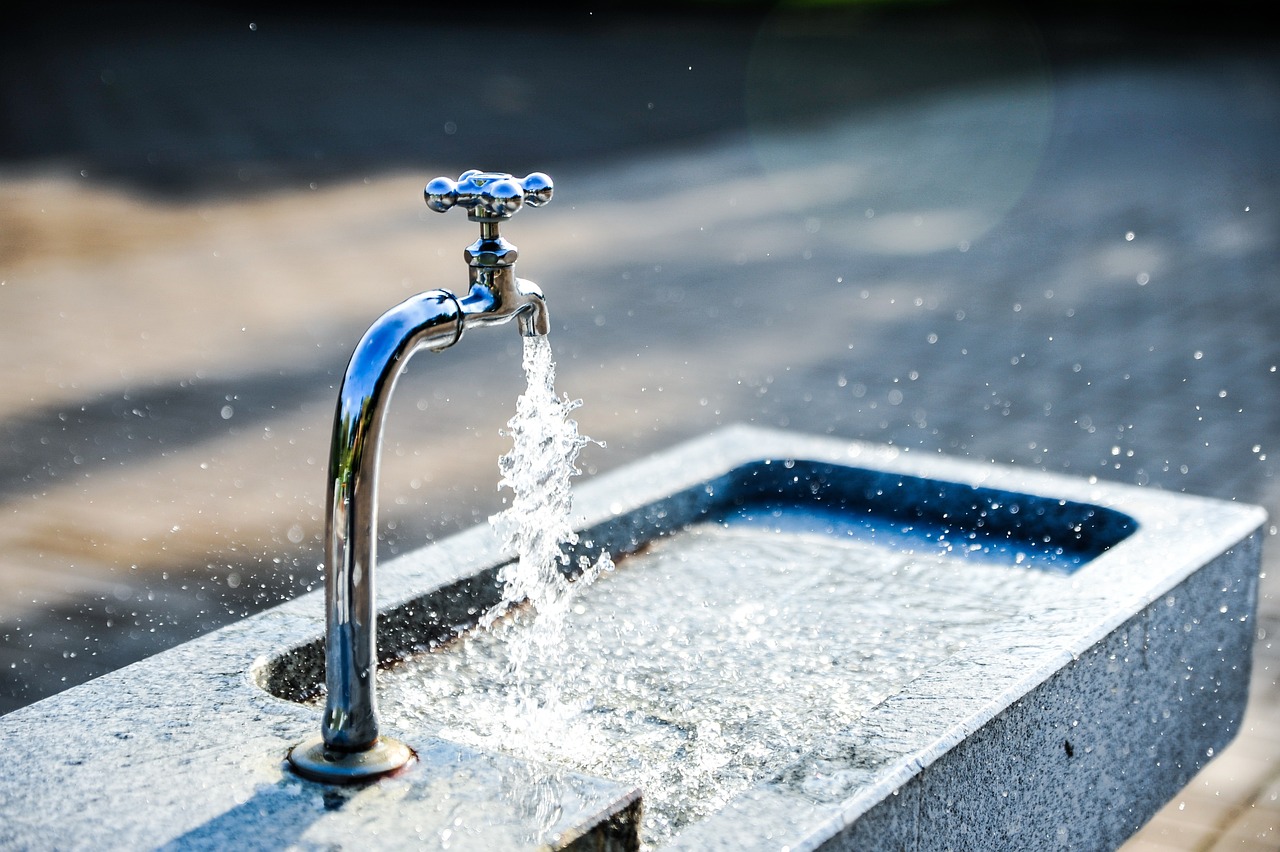This article explores the guidelines surrounding water consumption before a fasting blood test, addressing common questions and providing detailed insights to ensure accurate test results.
Understanding Fasting Blood Tests
Fasting blood tests are essential tools for healthcare providers to assess an individual’s health status. These tests require patients to refrain from eating or drinking anything other than water for a specific period, usually between 8 to 12 hours. The purpose of fasting is to provide a clear baseline for various measurements, including glucose and cholesterol levels, which can be affected by recent food intake.
Why Is Fasting Required for Blood Tests?
Fasting is necessary to eliminate variables that could skew test results. When food is consumed, it can lead to temporary spikes in glucose and lipid levels, making it challenging for doctors to accurately diagnose conditions such as diabetes or hyperlipidemia. Understanding the importance of fasting helps patients appreciate the necessity of these guidelines.
- The Role of Glucose Levels: Fasting stabilizes glucose levels, providing more reliable readings for tests like glucose tolerance and diabetes screenings.
- Impact of Food on Cholesterol Tests: Food intake can significantly influence cholesterol levels, making fasting crucial for accurate lipid panel tests.
- Effects of Eating on Liver Function Tests: Eating can distort liver function test results, which is why fasting is emphasized for accurate enzyme measurements.
Guidelines for Fasting Before Blood Tests
Typically, fasting requires abstaining from all food and beverages except water for at least 8 to 12 hours. It’s essential to understand what constitutes fasting in medical terms to ensure precise test outcomes.
Can You Drink Water Before a Fasting Blood Test?
One of the most common questions regarding fasting blood tests is whether water consumption is permitted. The answer is a resounding yes. Drinking water is encouraged as it helps keep the body hydrated, which can facilitate blood draw processes.
Benefits of Staying Hydrated
Hydration plays a vital role in ensuring a smooth blood draw. Adequate water intake can make veins more prominent and easier to access, reducing the likelihood of complications during the procedure.
Potential Risks of Water Consumption
While water is generally allowed, it’s important to avoid excessive consumption right before the test, as it might lead to dilution of blood components. Always consult with your healthcare provider regarding personal guidelines.
What About Other Beverages?
Not all liquids are treated equally when fasting. For example, beverages like coffee, tea, or juices can interfere with test results due to their caloric content or stimulating properties.
- Impact of Caffeinated Beverages: Caffeine can alter blood test results, particularly in tests measuring glucose and cholesterol levels. It’s advisable to avoid caffeinated drinks during the fasting period.
- Non-Caloric Beverages and Their Effects: Some non-caloric options, like herbal tea, may be acceptable, but it’s crucial to check with your healthcare provider.
Preparing for Your Blood Test
Proper preparation is key to achieving accurate results. In addition to fasting, consider scheduling your test early in the morning and avoiding strenuous activities that might affect your results.
Consulting Your Healthcare Provider
Always consult your healthcare provider for personalized advice regarding fasting and water consumption. They can provide tailored recommendations based on your health history and the specific tests being conducted.
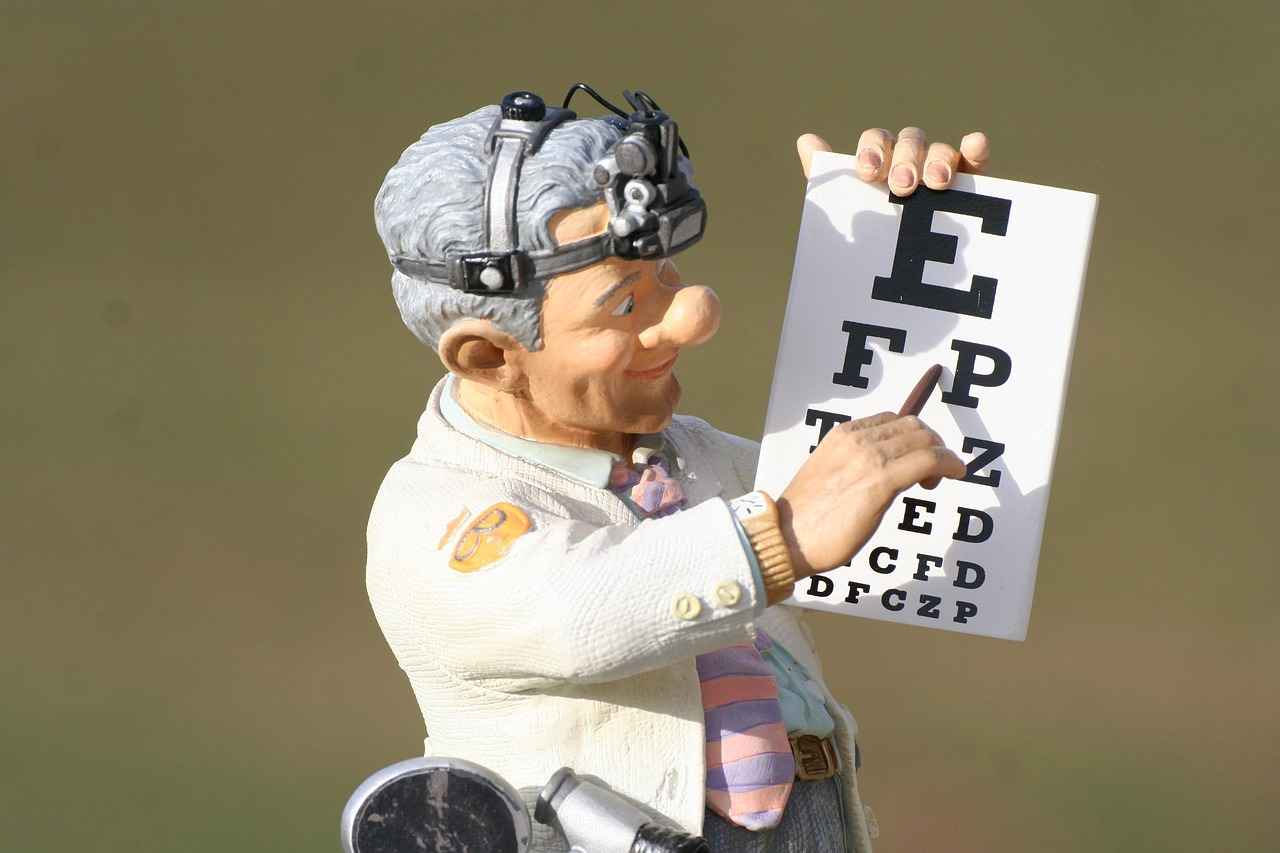
Understanding Fasting Blood Tests
Fasting blood tests are a critical component of modern medical diagnostics, providing essential insights into an individual’s health status. These tests require patients to abstain from food and sometimes even certain beverages for a specified period before the blood sample is taken. The primary objective of fasting is to ensure that the results are as accurate and reliable as possible, free from the influence of recent food intake.
During a fasting blood test, healthcare providers typically ask patients to refrain from eating for 8 to 12 hours prior to the test. This period allows the body to return to a baseline state, making it easier to interpret various biomarkers such as glucose, cholesterol, and triglycerides. Without fasting, recent meals can lead to fluctuations in these levels, potentially resulting in misleading results.
There are several reasons why fasting is necessary for specific medical evaluations:
- Glucose Testing: Fasting helps stabilize blood sugar levels, providing a clearer picture of how the body manages glucose. This is particularly important for diagnosing conditions like diabetes.
- Lipid Panels: Food intake can significantly affect cholesterol and triglyceride levels. Fasting ensures that these readings reflect the body’s baseline lipid profile.
- Liver Function Tests: Eating can alter liver enzyme levels, leading to inaccurate assessments of liver health. Fasting helps maintain the integrity of these tests.
Moreover, fasting blood tests can be utilized to monitor various health conditions, such as metabolic disorders, cardiovascular diseases, and liver dysfunction. By providing a snapshot of the body’s biochemical state, these tests enable healthcare providers to make informed decisions regarding diagnosis and treatment.
In summary, fasting blood tests are indispensable for obtaining accurate health assessments. They allow for the measurement of key health indicators without the interference of recent dietary intake. This practice not only enhances the reliability of the results but also plays a vital role in the early detection and management of various health conditions.

Why Is Fasting Required for Blood Tests?
Fasting is a crucial component of many blood tests, ensuring that the results are as accurate and reliable as possible. This section explores the importance of fasting before blood tests and the various factors that necessitate this practice.
Fasting blood tests are designed to measure specific substances in the bloodstream without the interference of recent food intake. When food is consumed, it can significantly alter the levels of glucose, lipids, and other biomarkers, potentially leading to misleading results. By fasting, patients can provide a clearer picture of their health status.
One of the primary reasons fasting is required is to stabilize glucose levels. After eating, glucose levels in the blood can spike dramatically, which may result in inaccurate readings for tests assessing diabetes or glucose tolerance. For instance, a fasting glucose test typically requires an overnight fast of at least 8 hours, allowing healthcare providers to evaluate how well the body manages sugar without the influence of recent meals.
Another critical aspect is the impact of food on cholesterol tests. Consuming food can lead to a temporary rise in triglycerides and other lipid levels, which can skew the results of a lipid panel test. Fasting for 9 to 12 hours prior to such tests ensures that the cholesterol levels measured reflect a baseline state, providing healthcare providers with essential information for assessing cardiovascular health.
Furthermore, fasting plays a vital role in liver function tests. Eating can affect the release and metabolism of liver enzymes, leading to results that may not accurately reflect liver health. By fasting, patients help ensure that the enzyme levels measured are not influenced by recent dietary intake, allowing for a more precise evaluation of liver function.
Understanding the specific guidelines for fasting is also important. Typically, fasting means abstaining from all food and beverages except for water for a designated period. This can vary depending on the type of test being performed, so it is essential for patients to follow their healthcare provider’s instructions closely.
In summary, fasting is a necessary step in many blood tests to eliminate variables that could compromise the accuracy of test results. By adhering to fasting guidelines, patients can help ensure that their healthcare providers have the most reliable data to inform diagnoses and treatment plans.
The Role of Glucose Levels
is a critical aspect of understanding how our bodies react to food intake and fasting. Glucose is a primary energy source for our cells, and its levels can vary significantly depending on dietary habits. This variation can impact the results of blood tests, particularly those used for diagnosing conditions like diabetes.
When we consume food, especially carbohydrates, our bodies break it down into glucose, leading to a temporary spike in blood sugar levels. This fluctuation can obscure the true baseline glucose levels, making it challenging for healthcare providers to assess a patient’s metabolic health accurately. Therefore, fasting before blood tests plays a vital role in stabilizing glucose levels.
Fasting typically requires individuals to abstain from all food and calorie-containing beverages for a specified period, usually 8 to 12 hours. During this time, the body uses stored glucose for energy, resulting in a more stable and representative reading of blood glucose levels. This is particularly important for tests such as the glucose tolerance test and routine diabetes screenings, where accurate measurements are essential for diagnosis and treatment planning.
Additionally, fasting minimizes the influence of recent dietary intake, which can lead to misleading results. For instance, a postprandial (after eating) glucose test can show elevated levels, suggesting potential insulin resistance or diabetes, even when a person may not have these conditions under normal circumstances. By fasting, patients provide a clearer picture of their glucose metabolism, allowing for more accurate assessments.
Moreover, fasting helps in distinguishing between different types of diabetes. For example, in cases of Type 1 diabetes, where the body does not produce insulin, fasting blood glucose levels may be consistently high. In contrast, individuals with Type 2 diabetes may experience fluctuations that can be better understood through fasting tests.
In summary, the role of glucose levels in fasting blood tests cannot be overstated. By stabilizing glucose through fasting, healthcare providers can obtain more reliable readings, leading to better diagnoses and treatment strategies for conditions such as diabetes. Understanding this relationship is crucial for anyone preparing for a blood test, as it directly impacts the accuracy of the results.
Impact of Food on Cholesterol Tests
Understanding the relationship between food intake and cholesterol levels is crucial for obtaining accurate results from lipid panel tests. Cholesterol tests measure the levels of various types of cholesterol in your blood, including low-density lipoprotein (LDL), high-density lipoprotein (HDL), and total cholesterol. The accuracy of these measurements can be significantly affected by what you consume prior to the test.
When you eat, your body processes the food, which can lead to temporary fluctuations in cholesterol levels. For instance, consuming a meal high in fats can elevate your triglyceride levels, which may skew the results of your lipid panel. This is where fasting becomes a critical component of the testing process.
Fasting typically requires abstaining from food for at least 9 to 12 hours before the blood draw. During this period, your body has the opportunity to return to a baseline state, allowing for more accurate cholesterol measurements. This is particularly important for individuals who are monitoring their heart health or are at risk for cardiovascular diseases.
- Why Fasting Matters: Fasting helps to eliminate the immediate impacts of recent food intake, ensuring that the cholesterol levels measured reflect your body’s normal state rather than the temporary spikes caused by recent meals.
- Variability in Results: Studies have shown that cholesterol levels can vary significantly based on recent dietary habits. For example, a study found that individuals who fasted before testing had more consistent LDL and HDL levels compared to those who did not.
- Guidelines for Fasting: Healthcare providers often recommend fasting for lipid panels to ensure that the results are reliable. It is important to follow these guidelines closely, as they are designed to provide the most accurate assessment of your cholesterol levels.
Additionally, the type of food consumed prior to a test can also play a role. Foods rich in saturated fats and trans fats can lead to increased LDL cholesterol levels, while healthy fats, such as those found in avocados and nuts, can help raise HDL cholesterol. Therefore, the timing and content of your meals can significantly impact the outcomes of your cholesterol tests.
In summary, fasting before a cholesterol test is essential for obtaining accurate readings. It minimizes the influence of recent dietary choices and allows for a clearer picture of your overall cholesterol health. If you are due for a lipid panel test, be sure to follow your healthcare provider’s fasting instructions to ensure the most reliable results.
Effects of Eating on Liver Function Tests
When it comes to assessing liver health, liver function tests play a critical role. These tests measure various enzymes and substances in the blood, providing essential information about how well the liver is functioning. However, the accuracy of these tests can be significantly affected by recent food intake. In this section, we will explore the implications of eating before liver function tests and why fasting is necessary for obtaining precise results.
Eating prior to liver function tests can introduce variables that distort the results. Food consumption can lead to temporary fluctuations in liver enzyme levels, which may misrepresent the liver’s actual health status. For instance, a meal rich in fats can elevate certain enzyme levels, potentially leading to a misdiagnosis of liver conditions. This is why healthcare professionals often recommend fasting for a specific period before undergoing these tests.
Why Fasting is Crucial
- Stabilization of Enzyme Levels: Fasting allows liver enzymes to stabilize, ensuring that the readings reflect the liver’s normal functioning rather than the immediate effects of food.
- Minimizing External Influences: Various foods can influence the metabolism and release of liver enzymes. By fasting, you minimize these external influences, leading to more reliable results.
- Accurate Diagnosis: Accurate liver function test results are essential for diagnosing conditions such as hepatitis, fatty liver disease, or cirrhosis. Fasting helps ensure that the results are not skewed by food intake.
Recommended Fasting Duration
Typically, healthcare providers recommend fasting for at least 8 to 12 hours before liver function tests. Water is usually allowed, which can help keep you hydrated and make blood draws easier. However, it’s essential to follow your healthcare provider’s specific instructions regarding fasting and hydration.
Potential Consequences of Ignoring Fasting Guidelines
- False Positives: Eating before the test can lead to elevated enzyme levels, resulting in a false positive for liver disease.
- Unnecessary Follow-ups: Misleading results may prompt unnecessary additional tests or treatments, causing undue stress and expense.
- Delayed Diagnosis: Incorrect readings can delay the diagnosis of serious liver conditions, impacting timely treatment.
In conclusion, adhering to fasting guidelines before liver function tests is vital for obtaining accurate and reliable results. By understanding the effects of eating on these tests, patients can better prepare for their medical evaluations, ultimately leading to more effective healthcare outcomes.
Guidelines for Fasting Before Blood Tests
When it comes to fasting blood tests, understanding the specific guidelines is paramount for obtaining accurate results. Fasting is not merely about abstaining from food; it involves adhering to specific protocols that can significantly influence the outcome of various medical evaluations. This section delves into the typical fasting duration and the medical definition of what constitutes a fast.
Typical Fasting Duration
The standard fasting duration for most blood tests is typically between 8 to 12 hours. This means that individuals should refrain from eating or drinking anything other than water during this period. For certain tests, such as lipid panels or glucose tests, adhering to this fasting window is essential to ensure that the results reflect the body’s baseline levels without interference from recent food intake.
What Constitutes a Fast?
In medical terms, a fast is defined as a period during which an individual abstains from caloric intake. This includes not only solid foods but also liquids that contain calories, such as juices, sodas, and alcoholic beverages. However, it is important to note that plain water is generally permitted and even encouraged during the fasting period as it helps maintain hydration and can facilitate the blood draw process.
- Solid Foods: All solid foods must be avoided.
- Caloric Beverages: Any drink containing calories, including coffee with cream or sugar, should not be consumed.
- Allowed Beverages: Only water is typically allowed, and it is advisable to drink it in moderation to stay hydrated.
Different tests may have varying requirements. For instance, some hormone tests may require a shorter fasting period, while others may necessitate a longer duration. It is crucial to follow the specific instructions provided by your healthcare provider or the laboratory conducting the test.
Exceptions to the Rule
In certain cases, your doctor may provide specific instructions that deviate from the standard fasting guidelines. For example, if you are on medication that requires food intake, it is essential to discuss this with your healthcare provider to determine the best approach for your blood test.
Importance of Adhering to Fasting Guidelines
Adhering to fasting guidelines is vital for the accuracy of blood test results. Consuming food or drinks that are not permitted can lead to false readings, which may result in misdiagnosis or inappropriate treatment plans. Therefore, understanding and following these guidelines is not just a formality but a critical step in ensuring your health assessments are reliable.
In summary, the guidelines for fasting before blood tests are straightforward yet crucial. By understanding the typical fasting duration and what constitutes a fast, individuals can better prepare for their tests, leading to more accurate and meaningful health evaluations.

Can You Drink Water Before a Fasting Blood Test?
When preparing for a fasting blood test, one of the most frequently asked questions is: Can you drink water? This section aims to clarify the guidelines surrounding water consumption during the fasting period, ensuring that you are well-informed before your test.
Fasting blood tests are crucial for obtaining accurate health assessments, as they measure various components in your blood, such as glucose, cholesterol, and liver enzymes. The purpose of fasting is to eliminate any variables that could potentially skew the results, allowing healthcare providers to make informed decisions based on your health status.
Generally, it is permitted to drink water before a fasting blood test. Staying hydrated is not only allowed but can also be beneficial. Here are some key points to consider:
- Enhanced Blood Draw Process: Drinking water can make your veins more prominent, making it easier for healthcare professionals to draw blood. This can lead to a smoother experience and may reduce discomfort.
- Prevention of Dehydration: Fasting can sometimes lead to dehydration, especially if you’re not consuming any fluids. Staying hydrated helps maintain your overall well-being and ensures that your blood volume remains stable.
- Accurate Test Results: Water does not contain calories or nutrients that could interfere with your blood test results, making it an ideal choice during the fasting period.
However, while water is generally safe, there are some nuances to consider:
- Consult Your Healthcare Provider: If you have specific health conditions or are undergoing particular tests, it’s always wise to check with your healthcare provider about your water intake.
- Potential for Overconsumption: Drinking excessive amounts of water right before your test could lead to dilution of your blood sample, which might affect certain test results.
In summary, drinking water is typically allowed before a fasting blood test and can actually be beneficial for both the patient and the healthcare provider. Just remember to stay within reasonable limits and consult your doctor if you have any concerns.
Understanding the guidelines around water consumption can help alleviate any confusion and ensure that your fasting blood test provides the most accurate results possible. Always prioritize clear communication with your healthcare provider regarding any questions or uncertainties you may have about the fasting process.
Benefits of Staying Hydrated
Staying hydrated is crucial for overall health, and it becomes particularly important when preparing for a fasting blood test. Many individuals wonder about the benefits of drinking water prior to such tests. In this section, we will delve into the various advantages of hydration and how it can positively influence the blood draw process.
- Improved Vein Visibility: Adequate hydration helps to expand blood vessels, making veins more prominent and easier to locate. This can significantly enhance the efficiency of the blood draw, minimizing discomfort and reducing the likelihood of multiple attempts.
- Enhanced Blood Volume: Drinking water increases the overall blood volume, which can facilitate smoother blood flow. This is particularly beneficial during the collection process, allowing for a more straightforward and less stressful experience.
- Reduced Risk of Hemolysis: Hemolysis, or the breakdown of red blood cells, can occur during blood draws, especially if the blood is too viscous. Staying hydrated helps maintain optimal blood viscosity, thereby reducing the risk of hemolysis and ensuring more accurate test results.
- Minimized Risk of Dehydration: Fasting can lead to dehydration, especially if the individual has not consumed enough fluids beforehand. Staying hydrated helps counteract this effect, ensuring that patients feel better during the procedure.
- Psychological Comfort: Knowing that you are adequately hydrated can ease anxiety associated with blood tests. Feeling physically prepared can lead to a more relaxed state, which is beneficial during the procedure.
It is important to note that while drinking water is encouraged, other beverages should be avoided. For example, caffeinated drinks can lead to dehydration and may affect test results. Therefore, sticking to plain water is the best approach.
In summary, staying hydrated before a fasting blood test offers numerous benefits that can enhance both the blood draw process and the overall experience. By ensuring proper hydration, individuals can improve their chances of a successful and comfortable blood test.
Potential Risks of Water Consumption
When preparing for a fasting blood test, many individuals wonder about the guidelines regarding water consumption. While it is generally accepted that drinking water is permissible, there are some nuances and considerations that should be understood to ensure accurate test results. This section delves into the potential risks associated with water intake before undergoing fasting tests.
Firstly, it is crucial to recognize that hydration plays a significant role in the blood draw process. Staying hydrated can make veins more prominent, facilitating easier access for the phlebotomist. However, the timing and quantity of water consumed can impact the test outcomes.
- Contamination Risks: If water is consumed from unfiltered or contaminated sources, there is a risk of introducing substances into the bloodstream that could potentially skew test results. It is advisable to drink clean, filtered water to mitigate this risk.
- Excessive Water Intake: While hydration is important, excessive water consumption can dilute blood samples. This dilution may lead to inaccurate readings, particularly for tests that measure concentrated substances such as electrolytes or hormones.
- Timing Matters: The timing of water consumption can also be a factor. Drinking large amounts of water immediately before the test may not allow for proper absorption and could affect the viscosity of the blood, potentially influencing results.
Moreover, some tests require specific conditions to yield accurate results. For example, certain metabolic panels may be sensitive to fluid intake, and even water can alter the concentration of specific analytes. Therefore, it is always best to follow the specific instructions provided by your healthcare provider or the lab conducting the tests.
In addition to the potential risks mentioned, individuals with certain medical conditions, such as kidney disorders, should exercise caution with water consumption. For these patients, even minor changes in hydration levels can have significant implications on their health and the accuracy of test results.
Ultimately, while drinking water before a fasting blood test is generally acceptable and often encouraged to promote hydration, it is essential to consider the quantity, quality, and timing of water intake. If in doubt, consulting with a healthcare professional can provide personalized guidance tailored to your specific health needs and testing requirements.

What About Other Beverages?
When it comes to fasting blood tests, not all liquids are treated equally. While water is generally permitted, the implications of consuming other beverages, such as coffee or tea, can vary significantly. Understanding these differences is crucial for anyone preparing for a fasting blood test, as they can impact the accuracy of the results.
Caffeinated drinks like coffee and tea can influence blood test results in several ways. Caffeine is known to affect metabolic processes, which may lead to fluctuations in various biomarkers. For instance, caffeine can elevate glucose levels temporarily, potentially skewing results for tests related to diabetes. Furthermore, certain studies suggest that caffeine may impact lipid profiles, which are vital for cholesterol testing. Therefore, it is generally recommended to avoid caffeinated beverages before undergoing a fasting blood test.
Herbal teas, unlike their caffeinated counterparts, are often considered a safer alternative during fasting. These teas typically contain no calories and are less likely to interfere with blood test results. However, it is essential to ensure that the herbal tea is free from additives or sweeteners, as these can introduce calories and potentially affect test outcomes. Some herbal teas, such as peppermint or chamomile, can also provide calming effects, which might be beneficial before a medical procedure.
In addition to herbal teas, some non-caloric beverages may be permissible during fasting. For example, plain sparkling water or mineral water can be acceptable options. These drinks hydrate without the caloric content that could affect test results. However, it is crucial to avoid flavored varieties that may contain sugars or artificial sweeteners. Always check the labels to ensure compliance with fasting guidelines.
While it may be tempting to consume various drinks to stay hydrated, it is essential to recognize the potential risks. Beverages that contain sugars, calories, or artificial ingredients can lead to inaccurate blood test results. This includes not only sweetened drinks but also those containing dairy or other caloric components. It is vital to adhere strictly to the fasting guidelines provided by healthcare professionals to ensure the reliability of test outcomes.
Before making decisions about beverage consumption prior to a fasting blood test, it is advisable to consult with your healthcare provider. They can offer personalized recommendations based on your health status and the specific tests you are undergoing. This step is especially important if you have any underlying health conditions or are taking medications that may interact with certain beverages.
In summary, while water is the safest option during fasting, other beverages can have varying effects on blood test results. Caffeinated drinks should generally be avoided, while non-caloric options like herbal tea or plain sparkling water may be acceptable. Always prioritize clear communication with your healthcare provider to ensure the best outcomes for your health assessments.
Impact of Caffeinated Beverages
Caffeine is a widely consumed stimulant found in various beverages, including coffee, tea, and energy drinks. While many people rely on caffeine for a quick energy boost, it can have significant effects on health assessments, particularly during fasting blood tests. Understanding the on blood test results is crucial for anyone preparing for such tests.
When undergoing a fasting blood test, it is essential to refrain from consuming anything other than water for a specified period, usually 8 to 12 hours. This fasting period is designed to ensure that the results are not influenced by recent food or drink intake. However, many individuals often wonder if caffeinated drinks can be included in this fasting regimen.
Research indicates that caffeine can alter certain blood test results, leading to misleading interpretations. For instance, caffeine can impact glucose levels by increasing insulin resistance, which may skew results for tests related to diabetes management. Additionally, caffeine may elevate levels of certain hormones, such as cortisol, which can affect metabolic readings.
Moreover, caffeine can influence cholesterol levels. Studies have shown that consuming caffeinated beverages before a lipid panel test may lead to higher triglyceride levels, potentially misrepresenting a person’s cardiovascular health status. This is particularly concerning for individuals who are monitoring their heart health and cholesterol levels.
Another significant aspect to consider is the effect of caffeine on liver function tests. Elevated enzyme levels can result from caffeine consumption, leading to potential misdiagnosis of liver conditions. Therefore, it is advisable to avoid caffeinated drinks before undergoing these specific tests.
In addition to the direct impact on test results, caffeine can also lead to dehydration, which can complicate blood draws. Dehydration can make veins less prominent and more difficult to access, potentially resulting in multiple attempts to obtain a sample. Staying hydrated with plain water is recommended for a smoother testing experience.
While it may be tempting to consume a cup of coffee or tea to start the day before a blood test, the potential ramifications on test accuracy warrant caution. If you are unsure about the implications of caffeine on your specific tests, it is always best to consult with your healthcare provider for personalized guidance.
In summary, while caffeine is a popular choice for many, its impact on fasting blood tests cannot be overlooked. To ensure accurate results, it is prudent to avoid caffeinated beverages during the fasting period. This simple precaution can lead to more reliable health assessments and better-informed medical decisions.
Non-Caloric Beverages and Their Effects
When preparing for a fasting blood test, understanding the types of beverages that are permissible is crucial for obtaining accurate results. Among these, non-caloric beverages play a significant role. This section delves into the effects of consuming non-caloric drinks, such as herbal tea, on fasting blood tests.
First and foremost, it’s essential to clarify what constitutes a non-caloric beverage. These drinks contain little to no calories and include options like herbal teas, black coffee, and plain water. Unlike sugary drinks or those containing artificial sweeteners, non-caloric beverages generally do not impact blood test results significantly.
- Herbal Tea: Herbal teas are often caffeine-free and can provide various health benefits without adding calories. They can help keep you hydrated, which is beneficial for blood draws.
- Black Coffee: While black coffee is technically non-caloric, it does contain caffeine, which can influence certain test results. It is advisable to consult with your healthcare provider regarding its consumption.
- Plain Water: Water is universally accepted before fasting blood tests and is encouraged to help with hydration.
Now, let’s focus on herbal tea. Many people wonder if consuming herbal tea can interfere with fasting blood tests. The good news is that most herbal teas are considered safe to drink. They are free from calories and sugars, which means they are unlikely to skew your results. However, it is essential to choose herbal teas that do not contain added flavors or sweeteners that could introduce calories.
Moreover, some herbal teas may offer additional benefits. For instance, teas like ginger tea or peppermint tea can aid digestion and may help in calming nerves before a medical procedure. However, it’s vital to avoid teas that contain stimulants or other ingredients that might affect metabolism or hydration levels.
In terms of hydration, staying well-hydrated before a fasting blood test can facilitate a smoother blood draw. Dehydration can make veins less visible and harder to access, leading to a more challenging experience for both the patient and the healthcare provider. Therefore, drinking non-caloric beverages, particularly water, is encouraged.
It’s also worth noting that while non-caloric beverages are generally acceptable, you should always consult your healthcare provider for personalized advice. They can provide guidance based on your specific health needs and the type of tests you are undergoing.
In summary, non-caloric beverages, especially herbal teas and water, can be beneficial and are typically safe to consume before fasting blood tests. They help maintain hydration and can provide comfort without compromising test accuracy. Always check with your healthcare provider to ensure that your choices align with the requirements of your specific tests.
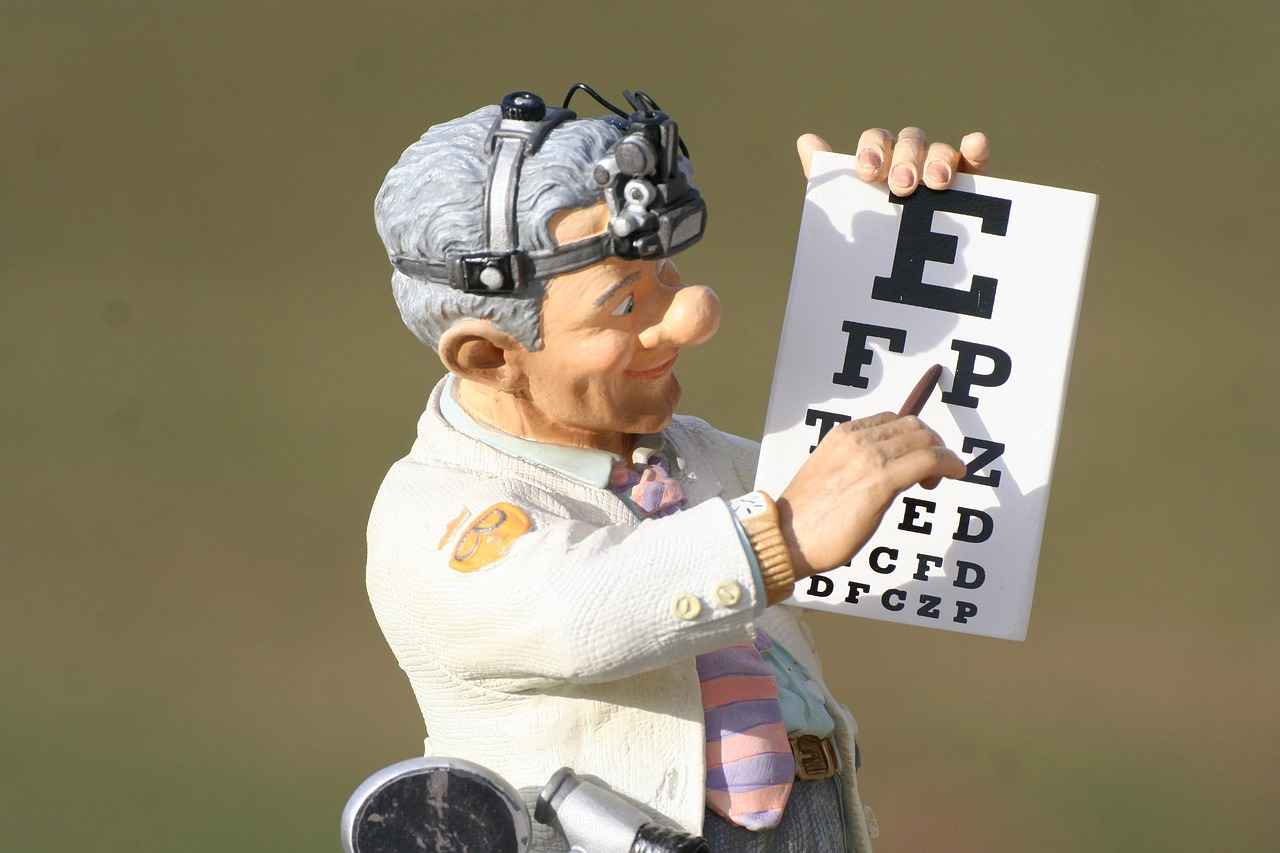
Preparing for Your Blood Test
Proper preparation is essential for achieving accurate results during a fasting blood test. This section offers practical tips that can help ensure your test results are reliable and meaningful. Understanding the importance of preparation can make a significant difference in your healthcare journey.
Dietary Considerations
Before your fasting blood test, it’s crucial to adhere to specific dietary guidelines. Typically, fasting means abstaining from all food and beverages except for water for a period of 8 to 12 hours before the test. Here are some important dietary tips:
- Avoid High-Fat Foods: In the days leading up to your test, steer clear of high-fat meals, as they can impact cholesterol levels.
- Limit Sugars and Carbs: Reducing your intake of sugary and carbohydrate-rich foods can help stabilize your blood sugar levels.
- Stay Hydrated: Drink plenty of water before your test. Hydration can make it easier for the healthcare provider to draw blood and may improve the accuracy of certain tests.
Scheduling Your Test
When scheduling your blood test, consider the following:
- Timing: Early morning appointments are often recommended. This allows for an overnight fast and can minimize the chances of distractions during the day.
- Medication Management: Consult with your healthcare provider about any medications you take, as some may need to be paused before the test.
- Personal Schedule: Ensure that the day of your test is free from significant physical or emotional stress, as these factors can also affect your results.
Additional Tips for Preparation
In addition to dietary considerations and scheduling, here are some more tips to help you prepare:
- Wear Appropriate Clothing: Choose clothing that allows easy access to your arm for the blood draw.
- Inform the Staff: Always inform the healthcare staff about any medical conditions or concerns you may have, including anxiety about needles.
- Relax: Try to stay calm and relaxed before the test. Stress can affect your blood pressure and heart rate, potentially skewing results.
Consult Your Healthcare Provider
Always consult your healthcare provider for personalized advice regarding preparation for your blood test. They can provide tailored recommendations based on your medical history and the specific tests being conducted. This can help you feel more prepared and at ease on the day of the test.
By following these guidelines and tips, you can ensure that you are well-prepared for your fasting blood test, leading to more reliable results and better overall health management.

Consulting Your Healthcare Provider
When it comes to health-related matters, particularly those involving fasting blood tests, the importance of cannot be overstated. Your doctor is uniquely qualified to provide personalized advice tailored to your specific health needs and circumstances. This section will delve into why discussing your fasting and water consumption concerns with your healthcare provider is crucial.
Fasting blood tests are often performed to assess various health indicators, including glucose and cholesterol levels. However, the guidelines for fasting can vary based on individual health conditions, medications, and other factors. Therefore, only a healthcare provider can give you the most accurate guidance based on your medical history.
Many individuals may wonder if they can drink water before a fasting blood test. While general guidelines often permit water consumption, it is essential to confirm this with your doctor, especially if you have specific health conditions such as kidney problems or heart disease. In some cases, excessive water intake could potentially dilute blood samples, leading to inaccurate results. Thus, your healthcare provider can help determine the right amount for you.
- Medication Considerations: If you are on medications, your doctor can advise you on how fasting and water consumption may interact with your prescriptions.
- Personal Health Conditions: Certain health issues may require different fasting protocols, making it imperative to seek professional advice.
- Test-Specific Guidelines: Different tests may have unique requirements regarding fasting and hydration; your doctor can clarify these for you.
Furthermore, your healthcare provider can also help you understand the significance of fasting in relation to your overall health. They can explain how fasting helps in obtaining accurate test results and what those results mean for your health. For instance, understanding how glucose levels fluctuate with food intake can provide valuable insights into your metabolic health.
Additionally, discussing your concerns with your healthcare provider allows you to clarify any misconceptions about fasting and hydration. Many people are uncertain about what constitutes a fast, and your doctor can provide clear definitions and guidelines to follow. This clarity can alleviate anxiety and ensure that you are adequately prepared for your blood test.
In summary, the act of consulting your healthcare provider is not just a recommendation; it is a vital step in ensuring that your fasting blood tests yield accurate and meaningful results. Your doctor can offer insights that are specifically tailored to your health profile, helping you navigate the complexities of fasting and water consumption. Always prioritize these discussions to empower yourself with the knowledge needed for effective health management.
Frequently Asked Questions
- Can I drink water before a fasting blood test?
Yes, you can drink water before a fasting blood test! Staying hydrated is actually beneficial as it can make the blood draw easier. Just remember, plain water is the best choice—avoid anything with calories or sugar.
- What happens if I drink coffee or tea before the test?
Drinking coffee or tea can complicate your test results. Caffeine may interfere with certain tests, so it’s best to stick to water. Think of it like this: you wouldn’t want to mix paint colors if you’re aiming for a perfect shade!
- How long should I fast before my blood test?
Typically, you should fast for 8 to 12 hours before your blood test. This means no food or drinks, except for water. It’s like giving your body a little break to ensure the most accurate results!
- Are there any risks associated with drinking water before the test?
Generally, drinking water poses no risks and is encouraged. However, if you have any specific health conditions, it’s always a good idea to check with your healthcare provider to be sure.
- What other beverages can I consume while fasting?
While water is the safest option, non-caloric beverages like herbal tea might be acceptable. However, it’s best to confirm with your doctor to avoid any surprises on test day!
